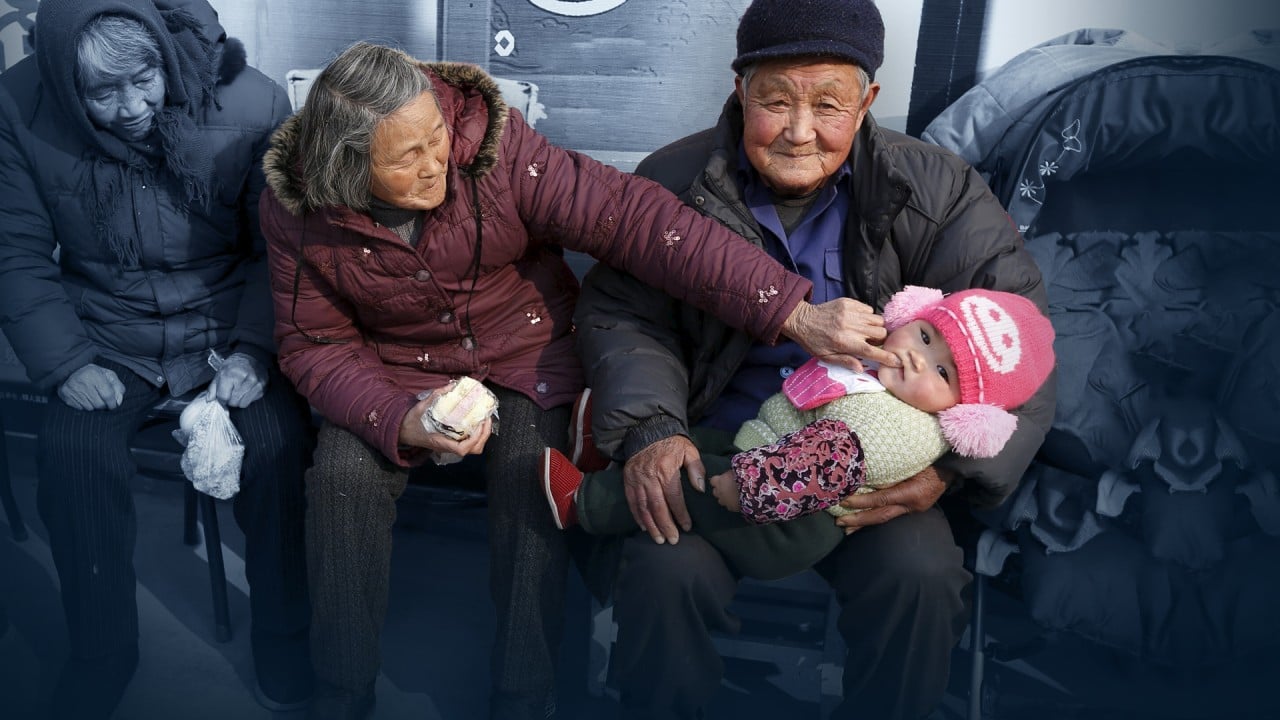
‘Two sessions’ 2022: calls for China’s family-planning restrictions to be fully abolished gather steam
- China’s rapidly slowing population growth and dwindling fertility rate have sounded alarms for urgent measures to be laid out in annual policy plan
- A raft of measures, policy changes and benefits are recommended by delegates to both of the ‘two sessions’ in the lead-up to the agenda-setting meetings
With thousands of China’s political elites converging on Beijing to attend the annual parliamentary gatherings, a number of representatives have revealed their proposals to the central government to address the nation’s worsening demographic crisis.
Huang Xihuan, a delegate to the National People’s Congress and a city government official from Huizhou in Guangdong province, is among those advocating for China to completely lift its birth restrictions as soon as possible.
“‘Three-child policy’ gives people the misleading impression that having four babies violates the policy,” Huang was quoted as saying in state media.
Demographic experts contend that, while the policy stipulates couples can have up to three children, in reality those who have more than three will not be penalised. However, couples who have more are not currently able to claim additional benefits that come with childbearing, such as parental leaves, subsidies and other favourable policies.
China’s population crisis could give women greater reproductive rights
“Despite only a minority of couples desiring to have more than three children, it is more in line with the country’s current situation to encourage births without any restrictions on the number of children a couple can have,” Huang said.
“China is at a critical transitional stage in which it is adjusting and perfecting its childbirth policies,” she added.
“Both the number and proportion of women aged 20 to 39, in their peak childbearing years, are dropping. I suggest that the National Development and Reform Commission carry out topical research and ease the restrictions on childbirth as soon as possible.”
Huang also proposed that women should enjoy maternity leave that is fully paid for by the government, rather than by employers.
“If the cost of extended maternity leaves is borne by companies, they will be reluctant to hire female employees to save on the cost of human resources,” she said. “Therefore, the extended maternity leave should be at the expense of the national budget to eliminate gender discrimination in the job market.”
Additionally, she called for offering subsidies to parents; cheaper day care and medical expenses; reduced interest rates for mortgages; and the promotion of unmarried women’s rights when it comes to having and raising children.
Another delegate, Su Ronghuan, who is an environmental engineer from Foshan in Guangdong, also said he will submit a proposal suggesting tax deductions for families raising multiple children.
Su suggested that tax-deduction items should include education and childcare costs for infants under the age of three, and that the individual income tax threshold should be raised in accordance with the number of children the family is raising, to ensure that families with more children receive more compensation.
Some delegates also called for the extension of paternity leave, which would allow men to help shoulder more of the domestic responsibilities, and thereby mitigating some discrimination against women in the job market and workplaces.
‘Shocking’ fall in China’s national growth rate as population ageing intensifies
Many provincial governments extended maternity leave after the country rolled out the three-child policy, to encourage women to give birth.
As a Chinese People’s Political Consultative Conference delegate, Feng Danlong, who is a businesswoman and a professor from Anhui province, said she will put forward suggestions including mandatory paternity leave, or shared parental leave that is divided between a couple, based on the situations of individual couples.


